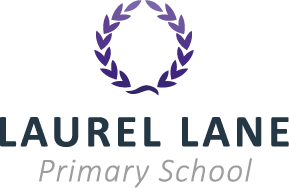
History
School Vision: Excellence in learning – Investment in Oracy – Strength in Inclusivity
At Laurel Lane our intent is for our History curriculum to provide children with the skills and passion for understanding real people who lived throughout time and real events which happened in the past as well as think about the causality of how these events has impacted the world. Allowing the children to become lifelong learners, developing a passion and curiosity to investigate further historical events.
The children undertake a broad and balanced programme through out their journey in Laurel Lane that takes in account of the range of abilities, aptitudes and physical, emotional and intellectual development. Through the subject of history the children learn a range of skills, concepts, attitudes and methods of working. We aim to deliver a ‘hands on’ curriculum from which children are able to investigate, ask questions and are equipped to use a range of historical skills such as their chronological understanding, historical knowledge, enquiry and cause and effect.
At Laurel Lane Primary School we are guided by the National Curriculum for History (2014).
The National Curriculum for history aims to ensure that all pupils:
- Know and understand the history of these islands as a coherent, chronological narrative, from the earliest times to the present day: how people’s lives have shaped this nation and how Britain has influenced and been influenced by the wider world
- Know and understand significant aspects of the history and the wider world: the nature of ancient civilisations: the expansion and dissolution of empires; characteristics features of past non-European societies; achievements and follies of mankind
- Gain and deploy a historically grounded understanding of abstract terms such as ‘empire’, ‘civilisation’, ‘parliament’, and ‘peasantry’
- Understand historical concepts such as continuity and change, cause and consequence, similarity, difference and significance, and use them to make connections, draw contrast, analyse trends, frame historically-valid questions and create their own structured accounts, including written narratives and analyses
- Understand the methods of historical enquiry, including how evidence is used rigorously to make historical claims, and discern how and why contrasting arguments and interpretations of the past have been constructed
- Gain historical perspective by placing their growing knowledge into different contexts, understanding the connections between local, regional, national and international history; between cultural, economic, military, political, religious and social history; and between short and long term timescales.